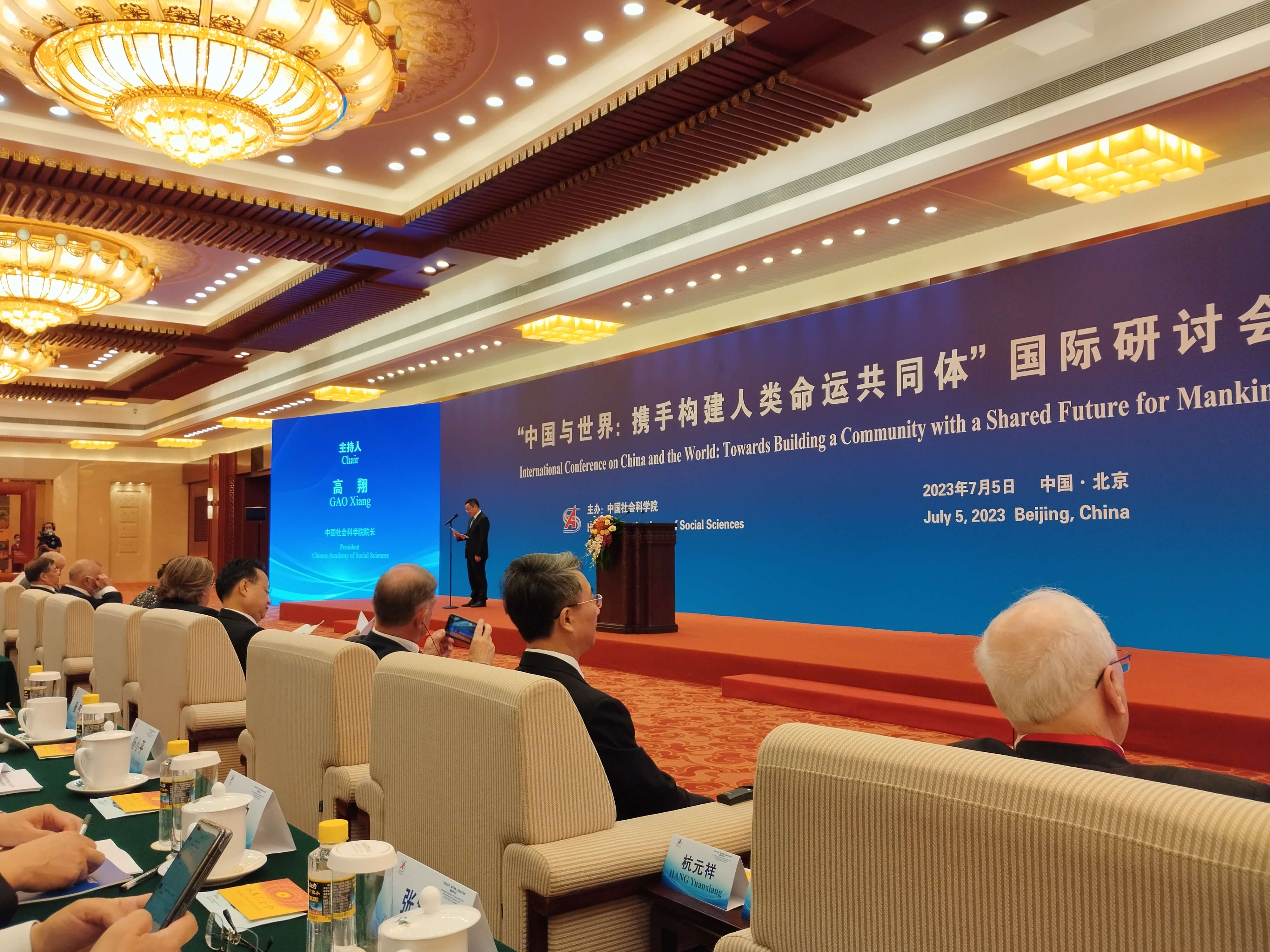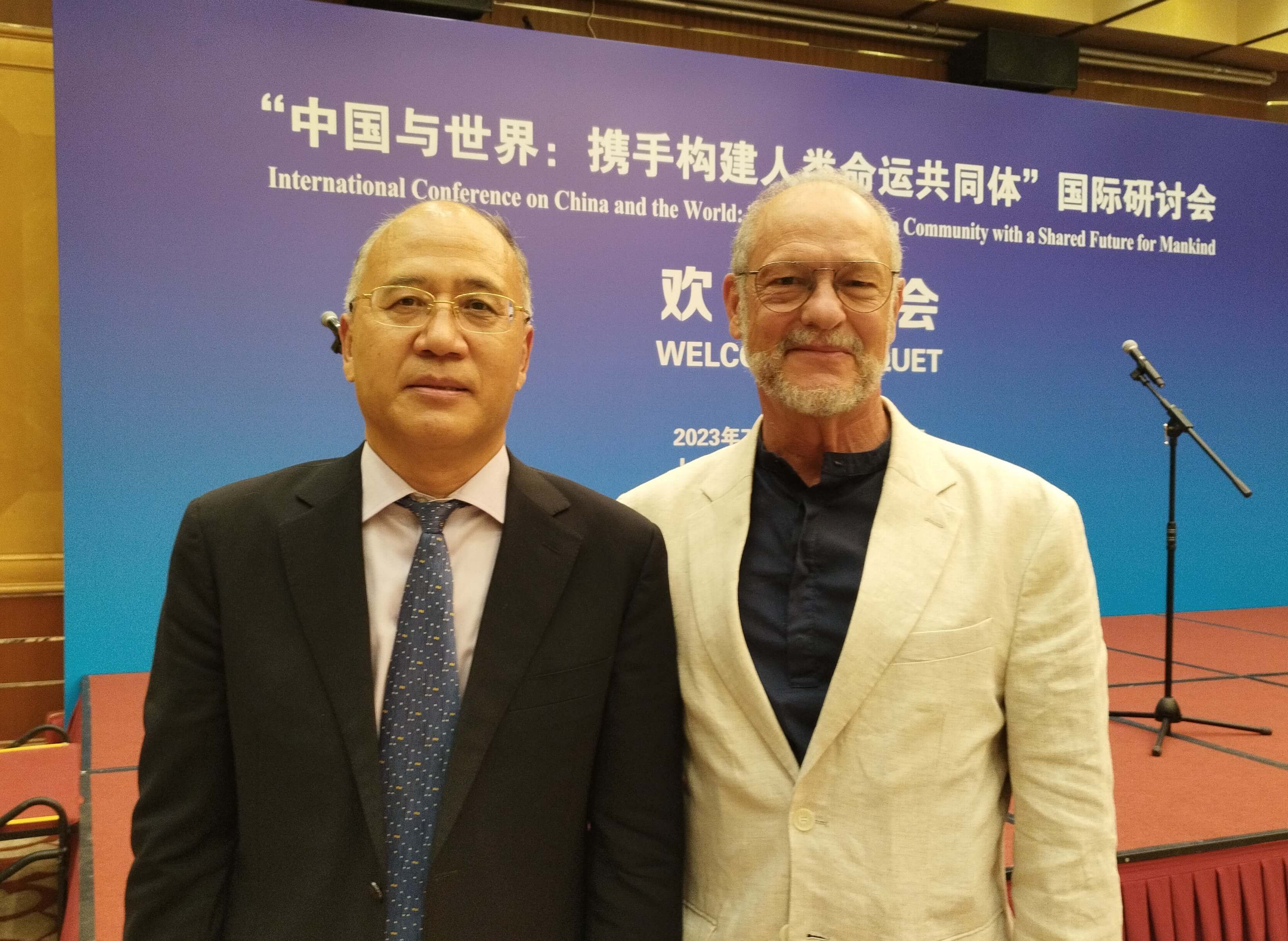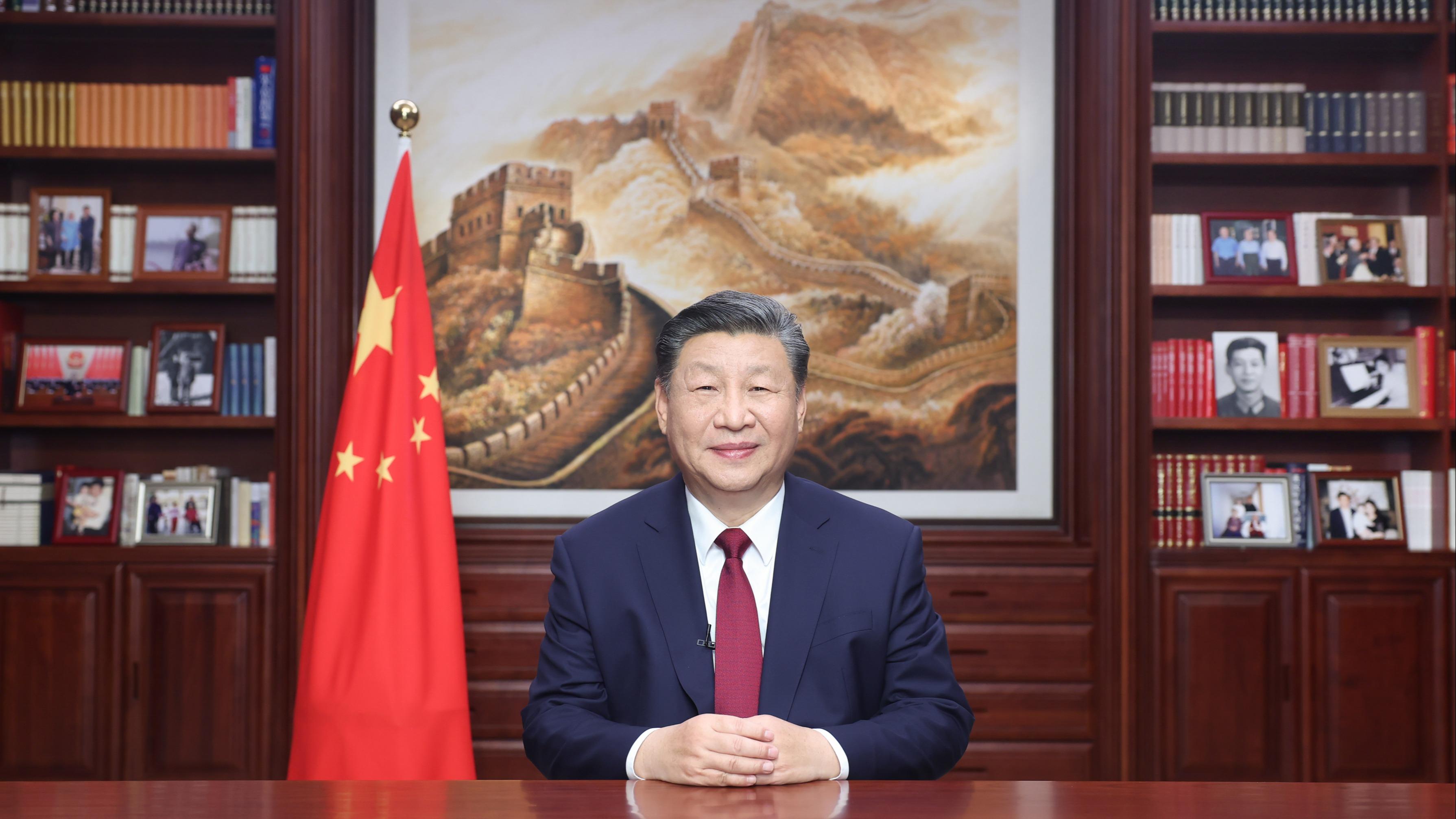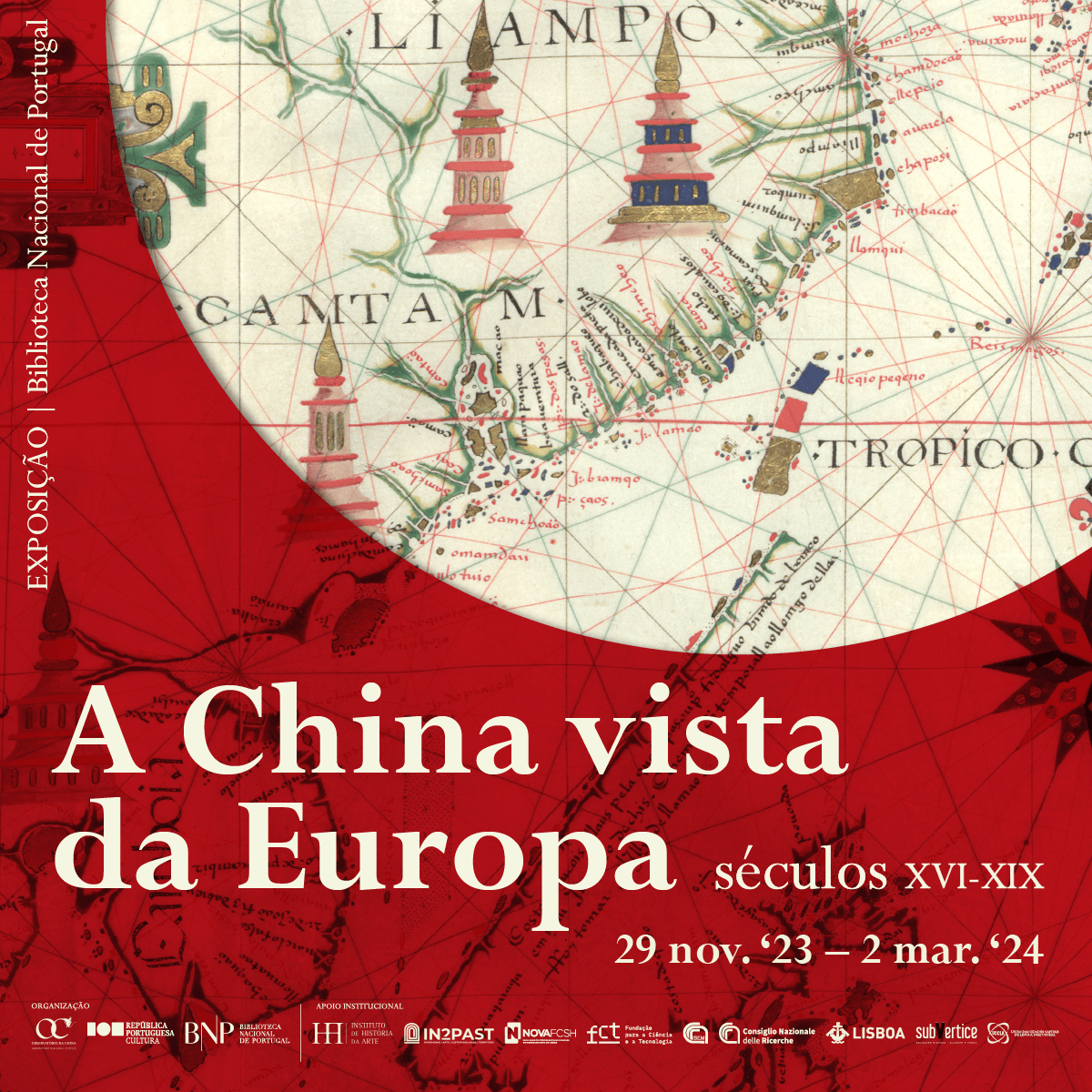
China and the World: towards building a Community with a Shared Future for Humanity
2023-07-30


By Dr. Rui Lourido, President of the Observatory for China.
We live in a world of turbulence and rapid transformation, with humanity facing unprecedented challenges. To analyze them, the Chinese Academy of Social Sciences (CASS) brought together on July 5th, in Beijing, more than 100 Chinese and foreign experts from all continents (from Asia to Africa, from Europe to America). Prominent among them are former presidents of the republic (Croatia) and former prime ministers (Japan, Egypt, Poland,...), as well as members of the Political Bureau of the Central Committee of the Communist Party of China (CCP) and top leaders of several scientific institutions. The different themes discussed at this conference proved to be important in trying to respond to the concerns of our time. The opening session took place in the Great Palace of the People itself, which illustrates well the importance given to it by the Chinese authorities (presided over by Gao Xiang, President of CASS, and the opening speech given by Li Shulei, from the Bureau Politician, and head of the Communication Department of the CCP Central Committee).
We live in a world that is undergoing profound changes that have not happened with this violence for a century. These are climate changes, currently aggravated by the current process of militarization of the main so-called Western economies (in particular the USA, European Union, Australia, and Japan, particularly due to the reopening of coal-fired industrial plants) and Russia. It is the unequal distribution of wealth that, with the pandemic and the business of war, has been worsening. These are forced migrations or population displacements that have worsened due to the combination of the problems mentioned above. The need for regulation of Artificial Intelligence also emerges at a global level.
The conference work sessions were divided into four central subthemes: Revitalizing Global Development; Promoting a Community of Life for Man and Nature Deepen Exchange and Mutual Learning between Civilizations; and Applying true multilateralism.
In these themes, we had the opportunity to analyze and reflect on the widening gap between North and South, and between developed and developing countries. The Human Development Index fell for the first time in 30 years, which is why China proposed the Global Development Initiative at the 76th UN General Assembly (September 2021). The objective is to accelerate the implementation of the UN 2030 Agenda to promote international cooperation and sustainable, balanced, coordinated, and inclusive development. China's pioneering role in poverty reduction, connectivity, industrialization, digital economy, and scientific and technological innovation was highlighted.
The response to climate change was discussed, with the need to advance green and low-carbon development, the use of renewable energy, and the improvement of global ecological governance. It reflected on how to increase understanding and trust, through mutual learning, between civilizations in current times, to build an open and inclusive world, maintaining mutual respect and harmonious coexistence.
I had the honor of being invited to speak at this conference and had the opportunity to highlight the need to support proposals for true multilateralism, which is characterized by openness and inclusion, consultation and cooperation, mutual benefits and gains, with the promotion of common values of humanity and the rejection of the zero-sum game and the politics of confrontation between blocks.
The relevance and need to implement the Global Security Initiative, proposed by China, was highlighted as a way of promoting the democratization of international relations and building an open world economy. However, some countries in the Global North, representing around 15% of the population, with the international organizations they control (such as the IMF and NATO), support the strategy of trying to maintain US hegemony over other countries, fueling wars and arbitrary disruption of global trade and global distribution chains.
According to the Stockholm International Peace Research Institute, total global military spending reached $2.2 trillion in 2022, with the US, EU, Japan, and their close partners accounting for $1.46 trillion of that amount (military spending of China are US$292 billion, while Russia spends US$86 billion). Currently, the United States promotes the rearmament of the Japanese, Australians, South Koreans, Germans, and English, so that they can also strengthen the Cold War and military against Russia and China, and maintain imperial dominance over the Global South. However, some elites in Europe and Japan disagree with confrontation with China, due to the escalation of economic and social crises in their countries due to blindly following the selfish agenda of US foreign policy, but cultural and political dependence on the US, for part of the European ruling elite, is superior to their desires for autonomy.
On the other hand, emerging economies appear to be very resilient and stronger than their GDPs present, which has allowed them to establish new international economic, political, and financial institutions (BRICS, SCO, BRI, EAEU, New Development Bank, Asian Infrastructure Investment Bank, see Michael Dunford - Professor Emeritus, University of Sussex). With the major project of the “Belt and Road” initiative, which, for 10 years, has contributed significantly to the development of numerous developing countries (namely with the construction of infrastructures essential to the modernization of these societies), in recent years, China proposed 4 other key initiatives for global stability: Community with a Shared Future; Global Development Initiative; Global Security Initiative and, as early as March 2023, the Global Civilization Initiative was launched to increase the common benefit of modernization.
The Conference also included a meeting to contribute to a comprehensive strategic partnership for China-Latin America relations. Another meeting was held on Eradicating Poverty and Achieving the Sustainable Development Goals, which is the objective of the Global Network of Think Tanks on Eradicating Poverty and Sustainable Development (founded in October 2021, in Beijing, at the Cooperation Conference South-South).
Wang Lei, Director General of the CASS International Cooperation Bureau, highlighted, in the concluding notes, that eradicating poverty and achieving development have always been considered basic human rights by the United Nations Charter. China's response, during the new phase of modernization, reaffirms China's stabilizing role in promoting world peace and security and deepening China's relationship with all nations. Relationships based on respect for the specific conditions of each country, on encouraging common economic and social development, based on mutual benefit (Win/Win), and respect for the United Nations Charter, resulting in an extraordinary opportunity for global progress.
ARTIGOS RELACIONADOS

2024-01-03
Speech by President Xi Jinping on New Year's Eve 2024

2023-12-11
Knowledge and Culture bring Portugal and China closer: China seen from Europe: 16th-19th centuries

2023-12-07
The EU-China summit, an opportunity to rebuild peace and cooperation in Eurasia

2023-11-24
Macau and the reunion

2023-11-17
"China and American decoupling and European de-risking"

2020-02-20
China’s environmental achievements can’t be overlooked by West’s myope
Publication: Global Times
